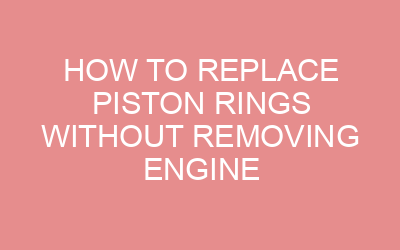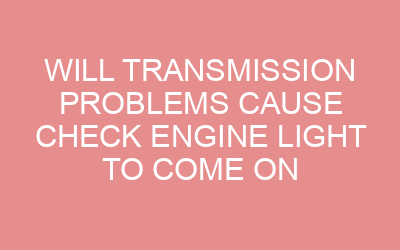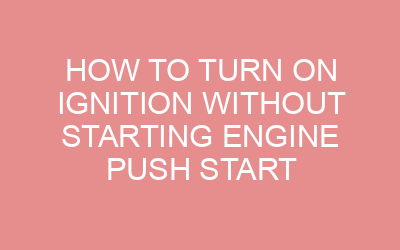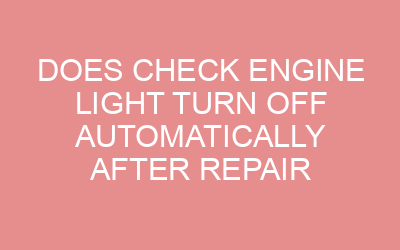To clean a car engine without water, use a specialized engine cleaner spray and a microfiber cloth for wiping away dirt and grime. Maintaining a clean engine is essential for optimal performance and longevity.
However, traditional methods of using water to clean engines can be time-consuming and risky due to electrical components and sensitive parts. Luckily, there are alternative methods available to effectively clean car engines without water. By using a specialized engine cleaner spray and a microfiber cloth, you can safely and efficiently remove dirt, grease, and debris from your engine.
This article will guide you through the step-by-step process of cleaning your car engine without water, ensuring a clean and well-maintained engine without the need for excessive time or risk.
What Is The Importance Of Cleaning A Car Engine?
Cleaning a car engine is important to maintain its performance and extend its lifespan. Learn how to clean a car engine without using water with these simple steps.
Cleaning a car engine is an essential part of regular vehicle maintenance. Neglecting engine cleanliness can lead to a range of problems that can affect the performance and longevity of your car. Let’s explore the importance of cleaning a car engine further:
Prevent Dirt And Debris Build-up
- Regular engine cleaning helps prevent the accumulation of dirt, dust, and debris.
- Dirt build-up can hinder engine performance and decrease fuel efficiency.
- By keeping the engine clean, you ensure optimal airflow and prevent clogging of vital engine components.
Extend Engine Lifespan
- A clean engine is less prone to damage caused by debris and grime.
- Dirt build-up can lead to corrosion and contribute to premature wear and tear of engine parts.
- Regular cleaning helps to remove harmful substances that could potentially cause engine malfunctions.
Improve Cooling Efficiency
- A clean engine translates into better cooling efficiency.
- Over time, debris can obstruct the radiator and cooling fans, impeding their ability to regulate engine temperature.
- Consistent engine cleaning ensures proper airflow and optimizes cooling performance.
Early Detection Of Leaks And Issues
- Cleaning the engine allows you to identify potential leaks or issues at an early stage.
- With a clean engine, it becomes easier to spot oil leaks, coolant leaks, or worn-out gaskets.
- Timely detection and repair of these problems can prevent more severe damage and costly repairs.
Enhance Overall Vehicle Value
- A car with a clean engine not only performs better but also holds a higher resale value.
- Potential buyers often associate a well-maintained engine with a well-cared-for vehicle.
- Regular engine cleaning demonstrates your commitment to maintaining your car’s condition, which can attract buyers and increase its value.
Keeping your car engine clean is crucial for optimal performance, longevity, and efficiency. Regular cleaning helps prevent dirt and debris build-up, extends the engine’s lifespan, improves cooling efficiency, allows for early detection of leaks and issues, and enhances the overall value of your vehicle.
By prioritizing engine cleanliness, you ensure a smoother and more reliable driving experience.
Why Would You Want To Clean A Car Engine Without Water?
Cleaning a car engine without water is a convenient and effective way to maintain its performance. By using specialized cleaning products and techniques, you can remove dirt, grease, and grime without the need for water, ensuring a clean and well-maintained engine.
When it comes to cleaning a car engine, most people assume that water is the go-to solution. However, there are a few reasons why you might want to consider cleaning your car engine without water:
Longevity Of Electrical Components:
- Water can damage electrical components, such as the spark plugs and alternator, which can lead to costly repairs.
- Cleaning without water helps minimize the risk of electrical damage and extends the lifespan of these vital components.
Avoiding Corrosion:
- Water can cause corrosion on metal parts, leading to rust and deterioration over time.
- By eliminating water from the cleaning process, you prevent the potential for corrosion and keep your engine in top condition.
Time Efficiency:
- Cleaning a car engine with water requires significant preparation and drying time.
- By opting for a waterless cleaning method, you save time and effort, allowing you to get back on the road faster.
Environmentally Friendly:
- Using water to clean a car engine can result in the release of harmful chemicals and contaminants into the environment.
- Cleaning without water reduces water wastage and minimizes the ecological impact of engine maintenance.
Convenience:
- Not everyone has access to a water source when they need to clean their car engine.
- Choosing a waterless cleaning method provides convenience for those without easy access to water, such as those living in apartments or urban areas.
Effective Removal Of Dirt And Grime:
- Waterless engine cleaning products are specifically formulated to penetrate and dissolve engine grease and grime.
- These cleaning solutions effectively remove dirt, oil, and other contaminants without the need for water.
By opting for a waterless cleaning method, you can keep your car engine clean, prolong its lifespan, and reduce the risk of costly repairs.
What Materials Are Needed To Clean A Car Engine Without Water?
To clean a car engine without water, you’ll need a few key materials including a degreaser, a brush, a microfiber cloth, and compressed air. These tools will help you effectively remove dirt, grime, and grease from your engine without the need for water.
When it comes to cleaning your car engine without water, you’ll only need a few key materials. These materials are easy to find and will help you achieve a thorough and effective clean. Here are the materials you’ll need:
- Engine Degreaser: This is the star of the show and will do most of the work in removing grease, grime, and dirt from your engine.
- Plastic Bags: These will come in handy for covering sensitive components like the alternator and air intake.
- Brushes: Different sizes of brushes will help you reach different areas and scrub away debris.
- Microfiber Towels: Soft and absorbent, these towels will help you wipe away excess degreaser and leave your engine looking clean and shiny.
- Protective Gloves: Essential for keeping your hands clean and protected while you work.
- Safety Glasses: These will shield your eyes from any debris or splashes.
- Shop Vacuum or Compressed Air: These will help you remove excess dirt and debris before the cleaning process begins.
- Plastic Scraper: Helpful for scraping away tough, stuck-on grime.
- Old Toothbrush: Perfect for getting into those hard-to-reach nooks and crannies.
- Engine Dressing: Optional but recommended, engine dressing will give your engine a polished finish.
By gathering these materials, you’ll have everything you need to tackle the task of cleaning your car engine without water. So, put on your protective gear, grab your supplies, and let’s get started on giving your engine the shine it deserves!
What Are The Steps To Clean A Car Engine Without Water?
Cleaning a car engine without water is a quick and efficient process. Follow these steps to remove dirt, grease, and grime: protect electrical components, use a degreaser, scrub with a brush, rinse with a damp cloth, dry the engine, and apply a protective coating.
How To Clean Car Engine Without Water
Is your car engine looking dirty and grime-covered? Cleaning your car engine without water is a great way to keep it in top shape without the hassle of using water and cleaning products. In this blog post, we will guide you through the steps to clean a car engine without water, ensuring a thorough clean and leaving your engine looking shiny and new.
Let’s get started!
Prepare The Engine For Cleaning
To begin cleaning your car engine without water, there are a few important steps to follow:
- Cover sensitive areas: Use aluminum foil or plastic bags to cover any sensitive parts of the engine, such as the alternator or air intake. This will prevent waterless cleaning products from damaging or corroding these areas.
- Remove debris: If there is any loose debris or leaves on top of the engine, carefully remove them using a vacuum cleaner or a soft brush. This will ensure that the cleaning process is more effective.
Apply The Waterless Engine Cleaner
Now that you have prepared the engine, it’s time to apply the waterless engine cleaner:
- Spray the cleaner: Using a waterless engine cleaner, spray the product generously onto the engine. Make sure to cover all areas, including the top, sides, and bottom.
- Let it sit: Allow the cleaner to sit on the engine for a few minutes. This will help break down dirt and grime, making it easier to remove.
- Gently scrub: Using a soft brush, gently scrub the engine surface to loosen any stubborn dirt. Be careful not to brush too hard, as this can scratch or damage the engine.
- Wipe clean: Take a microfiber cloth or towel and wipe away the loosened dirt and cleaner from the engine. Continue wiping until the engine surface is clean and shiny.
Protect And Finish
After cleaning your car engine without water, it’s important to take a few additional steps to protect and finish the process:
- Remove coverings: Carefully remove the foil or plastic covers from the sensitive areas of the engine. Double-check to ensure that no residue or debris remains.
- Apply engine dressing: To add a protective layer and give your engine a polished look, apply an engine dressing product. This will help protect against future dirt buildup and make cleaning easier next time.
- Start the engine: Start your engine and let it run for a few minutes to allow any excess moisture to evaporate. This will prevent any damage caused by lingering moisture.
Congratulations! You have successfully cleaned your car engine without water, leaving it looking clean and well-maintained. By following these steps regularly, you can ensure that your engine performs optimally and maintains its appearance for years to come.
How To Ensure Safety While Cleaning A Car Engine Without Water?
Looking to clean your car engine without water? Follow these steps to ensure safety: use a degreaser, cover sensitive areas, disconnect the battery, protect electrical components, scrub gently with a brush, and dry thoroughly.
Taking proper safety precautions when cleaning a car engine without water is crucial to prevent accidents and damage to your vehicle. Here are some important tips to ensure safety throughout the process:
- Choose a well-ventilated area: Perform the engine cleaning in a space that has adequate ventilation to avoid inhaling harmful fumes or vapors.
- Protect yourself with safety gear: Wear appropriate safety gear, such as safety goggles, gloves, and protective clothing, to shield yourself from chemicals and debris.
- Allow the engine to cool down: Before starting any cleaning procedures, ensure that the engine is completely cool to avoid burns or injuries.
- Disconnect the battery: To prevent any electrical mishaps, disconnect the car battery before cleaning the engine.
- Cover sensitive areas: Use plastic bags or protective covers to shield sensitive components, such as the alternator, fuse box, and air intake, from waterless engine cleaners.
- Choose a suitable engine cleaner: Select a high-quality, waterless engine cleaner that is designed to effectively remove grease, dirt, and grime without causing damage.
- Read and follow product instructions: Carefully read the instructions provided by the manufacturer of the engine cleaner and follow them strictly to ensure safe and efficient use.
- Use soft and non-abrasive brushes: When scrubbing away dirt and grime, utilize soft brushes or toothbrushes to prevent scratching or damaging the engine components.
- Avoid excessive saturation: Apply the engine cleaner sparingly and avoid excessive saturation, especially around electronic components, to prevent potential damage.
- Rinse off residue: Once the cleaning process is complete, thoroughly rinse off any remaining residue with a gentle stream of water or a damp cloth.
Remember, always prioritize your safety and take necessary precautions to ensure a smooth and worry-free car engine cleaning experience without water.
What Are The Common Mistakes To Avoid When Cleaning A Car Engine Without Water?
When cleaning a car engine without water, it’s important to avoid common mistakes, such as using harsh chemicals, neglecting to cover electrical components, and not protecting sensitive areas. Follow these tips for a successful waterless engine cleaning experience.
Cleaning a car engine without water requires precision and careful attention to detail. While this method can be effective, there are common mistakes that many people make that can hinder the cleaning process. To ensure that you clean your car engine effectively without water, here are some mistakes to avoid:
- Using too much degreaser: Applying excessive amounts of degreaser can be counterproductive. It can lead to a build-up of residue that is difficult to remove.
- Neglecting to protect electrical components: It’s crucial to cover electrical components and sensitive areas before cleaning. Failure to do so may result in damage or malfunction.
- Applying degreaser on a hot engine: Never apply degreaser directly onto a hot engine as it can cause the product to evaporate quickly and be less effective in removing grime and dirt.
- Using a pressure washer or hose: Avoid using a pressure washer or hose when cleaning a car engine without water. The forceful water can damage delicate engine parts and electrical connections.
- Scrubbing with abrasive materials: Using rough brushes or abrasive materials can scratch and damage the surface of your car engine. Stick to soft brushes or microfiber cloths for a safe and effective clean.
- Forgetting to rinse thoroughly: While you’re not using water, it’s important to rinse off the degreaser thoroughly. Leaving any residue behind can lead to future build-up and potential damage.
Remember, by avoiding these common mistakes, you can ensure a thorough and effective clean while preserving the integrity of your car engine.
How Often Should You Clean Your Car Engine Without Water?
Wondering how often to clean your car engine without water? Discover the best practices for keeping your engine clean with water-free methods. Maintaining your car engine without water helps to prevent buildup and maintain optimal performance.
Regular maintenance of your car engine is crucial to ensure optimal performance and longevity. When it comes to cleaning your car engine without water, it is important to follow a suitable cleaning schedule. Here are some guidelines to help you determine how often you should clean your car engine without water:
- Frequency: Cleaning your car engine without water should be done at least once every 6 to 12 months, depending on various factors such as climate, driving conditions, and the level of dirt and debris accumulation.
- Regular cleaning helps to prevent the build-up of dirt, grime, and contaminants, ensuring the engine runs smoothly.
- If you regularly drive in dusty or off-road conditions, you may need to clean your engine more frequently to maintain its efficiency.
- Visual Inspection: In addition to following a specific time frame, it is important to visually inspect your engine periodically to determine if it needs cleaning.
- Check for signs of excessive dirt, grease, or debris on the engine surface.
- Look out for any unusual smells or sounds coming from your engine, as this could indicate a need for cleaning.
- Driving Conditions: Your driving conditions play a significant role in determining how often you should clean your car engine without water.
- If you frequently drive in urban areas or areas with heavy pollution, you may need to clean your engine more often to remove pollutants and contaminants.
- On the other hand, if you mostly drive on highways or in clean environments, you may be able to extend the cleaning interval.
- Manufacturer’s Recommendations: Consult your car’s owner manual or the manufacturer’s recommendations for specific guidelines on engine cleaning.
- Some car manufacturers provide specific instructions or interval suggestions for cleaning the engine without water.
- Following the manufacturer’s recommendations will help ensure that you maintain the engine properly and avoid any potential warranty issues.
- DIY Inspection: If you are unsure about the cleanliness of your car engine, you can also perform a DIY inspection.
- Open the hood and visually check the engine for any visible dirt, oil stains, or debris.
- Pay attention to areas like the intake manifold, valve covers, and electrical connections.
By following these guidelines and using your best judgment, you’ll be able to determine the appropriate interval for cleaning your car engine without water. Regular cleaning will help keep your engine in top-notch condition, ensuring optimal performance and longevity.
What Are The Benefits Of Cleaning Your Car Engine Without Water?
Cleaning your car engine without water offers several benefits including improved engine performance, extended lifespan, and reduced risk of corrosion. By using waterless cleaning products, you can effectively remove dirt and grime while protecting sensitive engine components.
Cleaning your car engine without water offers several advantages, making it a popular choice among car enthusiasts. Here are the key benefits:
- No risk of water damage: Water can damage sensitive electrical components in your car’s engine. Cleaning without water eliminates this risk, ensuring the longevity and performance of your engine.
- Efficient removal of dirt and grime: Waterless engine cleaning products are designed to effectively dissolve and remove dirt, grease, and grime. This ensures a thorough cleaning without the need for excessive scrubbing or rinsing.
- Time-saving: Traditional methods of cleaning car engines involve time-consuming processes such as covering sensitive areas, rinsing, and drying. With waterless cleaning, you can save a lot of time by directly applying the product and wiping away the dirt.
- Environmentally friendly: Cleaning without water helps in conserving water resources, making it an eco-friendly choice. Additionally, waterless engine cleaning solutions are often made with biodegradable ingredients, minimizing their impact on the environment.
- Versatility: Waterless engine cleaning products are versatile and can be used on various parts of your vehicle. Whether it’s the engine block, mechanical components, or even the exterior surfaces, these products can effectively clean and restore the shine.
Adopting a waterless cleaning method for your car engine offers several benefits, including avoiding water damage, saving time, and contributing to a more sustainable environment.
Can All Car Engines Be Cleaned Without Water?
Car engines can be effectively cleaned without using water. Discover the step-by-step process to keep your engine clean and running smoothly without the need for water.
When it comes to cleaning car engines, using water is the traditional method that most people opt for. However, there are alternative ways to clean car engines without the use of water. Let’s explore whether all car engines can be cleaned without water.
Using Solvent-based Engine Degreasers:
- Engine degreasers are specially formulated products designed to remove grime, grease, and dirt from car engines without the need for water.
- These degreasers contain solvents that effectively break down and dissolve tough engine deposits.
- They are suitable for most car engines and can be used on various components such as the engine block, valve covers, and other metal parts.
Dry Vapor Steam Cleaning:
- Dry vapor steam cleaning is a method that utilizes high-temperature steam to clean car engines without water.
- The steam penetrates the dirt and grease, loosening it and making it easy to wipe away.
- This method is environmentally friendly and can be effective in removing stubborn build-up and oil stains.
- However, it may not be suitable for all car engines, as some components could be sensitive to high heat or moisture.
Carbon Dioxide Cleaning:
- Carbon dioxide cleaning, also known as dry ice blasting, is a non-abrasive method used to clean car engines without water.
- Dry ice is blasted onto the engine surfaces, causing the dirt and grease to freeze and become brittle.
- The frozen residue is then easily removed without leaving any moisture behind.
- This method is effective for removing heavy grease and carbon deposits, but it may not be suitable for all car engines due to potential damage caused by the force of the dry ice particles.
While there are alternative methods available to clean car engines without water, not all engines may be suitable for these techniques. It’s important to consider the specific needs and specifications of your car engine before attempting any of these methods.
Consulting a professional or referring to the car manufacturer’s guidelines can provide further guidance on whether waterless cleaning methods are appropriate for your car engine.
What Precautions Should Be Taken After Cleaning A Car Engine Without Water?
After cleaning your car engine without water, it’s important to take certain precautions. These include letting the engine cool down completely, covering sensitive parts with plastic bags, and using a dry cloth to wipe away any excess cleaner. Safety measures like disconnecting the battery and avoiding direct spraying of water or cleaning products on electrical components should also be followed.
After effectively cleaning your car engine without using water, it’s important to take certain precautions to ensure the longevity and optimal performance of your vehicle. Below are some essential guidelines to follow:
- Allow the Engine to Cool Down: Before proceeding with any post-cleaning steps, make sure the engine has completely cooled down. This will help prevent any potential burns or damage.
- Inspect for Loose or Damaged Components: Take a moment to visually inspect the engine for any loose or damaged components. Look for any signs of cracked wires, loose connections, or leaks that may have occurred during the cleaning process.
- Check for Water Intrusion: Even though you’ve cleaned the engine without water, it’s still essential to inspect for any water intrusion or moisture. Check all electrical components and connections to ensure they are dry and free from any potential water damage.
- Replace any Removed Components: If you removed any parts or covers during the cleaning process, ensure they are properly reinstalled before starting the engine. This will help protect the internal components and maintain the engine’s overall integrity.
- Test the Engine: Once everything is back in place, start the engine and let it run for a few minutes. Pay close attention to any unusual noises or vibrations that may indicate a problem. Additionally, check for any warning lights on the dashboard.
- Inspect for Leaks: After the engine has run for a few minutes, inspect the engine and the surrounding areas for any leaks. Look for any fluids such as oil or coolant that may be leaking from the engine. If you detect any leaks, address them promptly.
- Monitor the Engine: As you start driving your car, keep an eye on the engine’s performance. Listen for any irregular sounds, watch for smoke or unusual exhaust emissions, and be aware of any changes in the vehicle’s power or fuel efficiency. If you notice any abnormalities, consult a professional mechanic.
- Regular Maintenance: Regularly maintaining your engine is crucial to its longevity. Follow the manufacturer’s recommended maintenance schedule, including oil changes, filter replacements, and other routine inspections. This will help ensure the engine remains in top condition.
- Protective Measures: Consider applying a protective coating to various engine components, such as a specialized sealant, to provide an additional layer of protection against dirt and grime buildup. This can make future cleanings easier while also extending the engine’s lifespan.
- Maintain Cleanliness: Keep the engine bay clean by regularly removing debris and dust. This will help prevent any potential damage to electrical and mechanical components and make future cleanings less challenging.
By following these precautions, you can ensure the cleanliness, functionality, and longevity of your car engine after cleaning it without water. Take the necessary steps to maintain your engine’s performance and protect it from potential damage.
Frequently Asked Questions For How To Clean Car Engine Without Water
How Do You Clean An Engine Without Water?
Clean your engine without water by using a non-water-based degreaser and a brush. Apply the degreaser to the engine surfaces, scrub away dirt and grime with the brush, then wipe off with a cloth. Remember to protect sensitive areas, such as electrical components, from the degreaser.
How Can I Clean My Car Without Water?
To clean your car without water, use waterless car wash products or detailing sprays. These can be sprayed onto the vehicle’s surface and wiped away with microfiber towels. It’s efficient, eco-friendly, and effective at removing dirt and grime.
What Is The Best Way To Clean The Inside Of A Car Engine?
To clean the inside of a car engine, follow these steps: 1. Disconnect the battery and cover sensitive components. 2. Use a degreaser and a brush to scrub away dirt and grime. 3. Rinse with water but avoid spraying directly onto electrical components.
4. Dry the engine thoroughly and remove the covers. 5. Reconnect the battery and ensure everything is functioning properly.
What Can I Pour In My Engine To Clean It?
To clean your engine, it is best to use a specialized engine cleaner recommended by the manufacturer. Avoid pouring any other chemicals or substances into your engine as they may cause damage or reduce its performance.
Conclusion
Cleaning your car engine without water is not only an environmentally friendly option but also a practical one. By using alternative methods like steam cleaning or dry brushing, you can effectively remove dirt, grime, and grease without the need for water.
This not only helps to maintain the engine’s performance but also reduces the risk of water damage. So give it a try and experience the benefits of a clean engine without water.














Leave a Reply